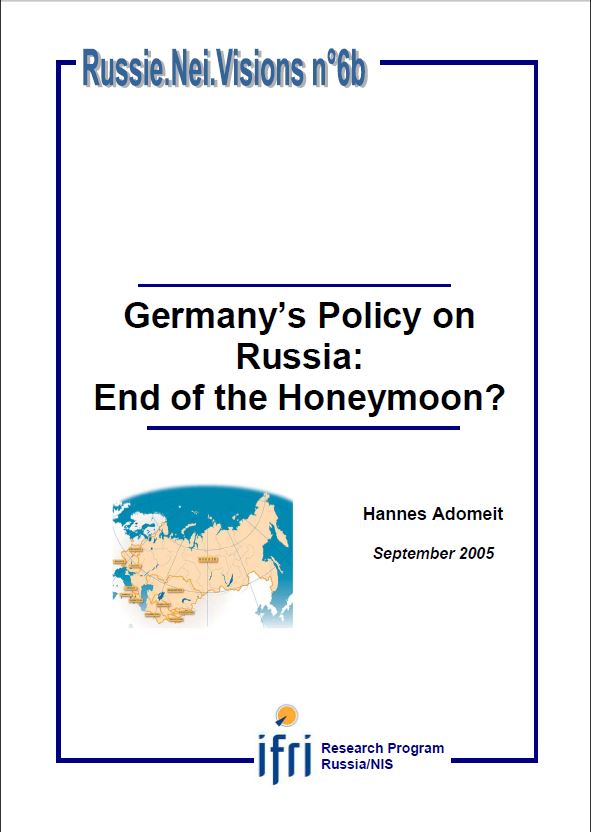Germay's Policy on Russia: End of the Honeymoon?

Original title in German: 'Deutsche Russlandpolitik: Ende des 'Schmusekurses'?'
The developments in Putin's Russia away from democracy and the constitutional state have also placed Germany's policy on Russia under scrutiny. In the run-up to the election to the Bundestag on September 18th, representatives of the opposition parties CDU/CSU and FDP have thus made it clear that they no longer approve of the policy Chancellor Schröder has adopted with regard to Russia. The new EU member states in Eastern and Central Europe are accusing Germany of pursuing a Sonderweg compared with the rest of the EU and attempting to build a special relationship with Russia. This article addresses the question of whether this criticism is justified, and what is behind the 'strategic partnership' that Chancellor Schröder and President Putin have attested to time and again.
Double issue in partnership with the CERFA
Andrei Zagorski, 'Russia and Germany: Continuity and Changes', Russie.Nei.Visions, n.6(a), September 2005
Issue available in French, Russian and German.
Download the full analysis
This page contains only a summary of our work. If you would like to have access to all the information from our research on the subject, you can download the full version in PDF format.
Germay's Policy on Russia: End of the Honeymoon?
Related centers and programs
Discover our other research centers and programsFind out more
Discover all our analysesRussia, the Palestinians and Gaza: Adjustments after October 7th
The Soviet Union (USSR), and subsequently the Russian Federation as its internationally recognized legal successor, has consistently sought to play a visible role in efforts to resolve the Israeli-Palestinian conflict.
Deathonomics: The Social, Political, and Economic Costs of War in Russia
The report attempts to outline and examine a truly new phenomenon in Russian society, dubbed “deathonomics”—the making of a mercenary army against the backdrop of the Kremlin’s war in Ukraine, eventually replacing both the Soviet (conscript) and early new Russian (contract) armies. It notes that, by the end of 2023, this trend had turned the military service into one of the highest-paying professions in the country, something not seen in Russia on such a scale since the late 17th century.
Russia's Asia Strategy: Bolstering the Eagle's Eastern Wing
Among Russia’s strategic priorities, Asia traditionally played a secondary role compared to the West. In the mid-1990s, then Foreign Minister Yevgeny Primakov initiated a rapprochement with China and India. Then, in 2014, deteriorating relations between Russia and the West prompted Moscow to begin its “great pivot to the East”.
Kazakhstan After the Double Shock of 2022: Political, Economic and Military Consequences
The year 2022 represented a dual shock for Kazakhstan. In January, the country faced its most severe political crisis since independence, followed in February by Russia’s full-scale invasion of Ukraine, which cast uncertainty over the borders of post-Soviet states. These consecutive crises profoundly shaped Kazakhstan’s domestic and foreign policy.











